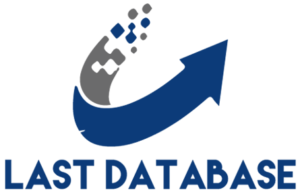CRM system cannot compensate for weak team management. Even the most expensive and perfectly configur . If managers do not have internal discipline, external control and clear guidelines, the system will be either empty or distorted.
A typical situation: transactions are not recorded, tasks are forgotten, part of the communication goes into messengers or personal notes. Even the most expensive and perfectly configur.
As a result, CRM does not show the local marketing email list real picture, but its fragments. Based on this distorted data, managers make decisions that may not only fail to help, but also worsen the situation.
The main mistake is to perceive CRM as an independent management mechanism
But the system does not think, does not convince, does not control. It only reflects how people work.
If an employee does not understand why he is entering data, does not feel responsible, and does not receive regular feedback from his data migration in all directions manager, the CRM becomes an unreliable source of information.
To avoid this, it is important to integrate management control and motivation tools into the work:
- Clear KPIs for activity and results: number of touches, new deals, lead processing speed.
- Transparent motivation tied to metrics in CRM, not to “feelings”.
- Regular checks of the quality of filling the system are not for the sake of punishment, but to develop a habit.
- Setting up automatic tasks and reminders to eliminate the influence of the “human factor”.
- SLA (service level agreements) for the speed of response to an incoming request, for the terms of transaction support, for finalization of the result.
When management becomes systematic, CRM really starts to work: it helps to monitor clients, record errors in the process, optimize work and manage sales based on data.
However, if there is no discipline, CRM will remain just a pretty interface, and the business will continue to lose opportunities.
Example of a report on communication channels and manager workload:
Image from the author’s archive
No focus on analysis and action = no growth
Another key reason why CRM does not bring the expected growth is ignoring analytics.
The system accumulates a huge mobile list amount of data: funnel stages, lead sources, conversions, deal duration, manager activity. But if no one opens the reports, the data is not discussed, and the conclusions are not converted into actions, this is dead capital, CRM becomes a repository of information, not a development tool.
Without regular analytics, it is impossible to understand where sales are being lost, which stage of the funnel is not working well, how customer behavior is changing.
For example, the system shows that 80% of potential clients leave after the “presentation” stage, but no one reviews the script, the meeting format does not change, and managers are not trained. All the information is there, but it does not become a growth point.
To change this, analytics needs to be integrated into management practice.
It is important not just to “look at the numbers”, but:
- introduce a routine of analysis and decisions;
- build convenient dashboards with key metrics, accessible to every manager;
- hold regular follow-up meetings: once a week, once a month – to discuss what is working, what is failing, and what steps need to be taken.
Analytics should not be a report “for the sake of it”, but a basis for action.
Only then does CRM cease to be just an accounting system and become an engine for sales growth.






